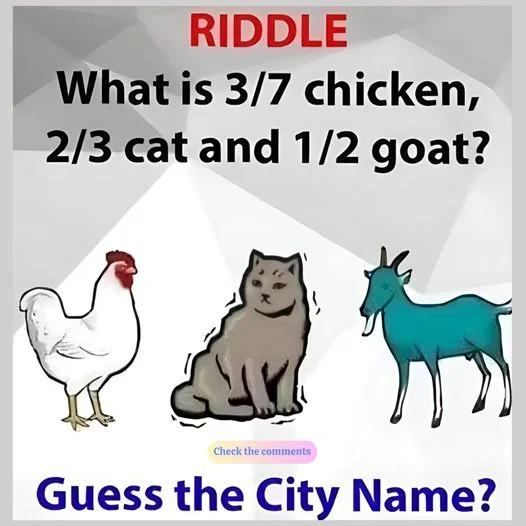Puzzles have long been a source of entertainment, but they are far more than that—they are a crucial tool for brain development. From jigsaw puzzles to complex riddles, these mental exercises stimulate cognitive functions, improve memory, and enhance problem-solving skills. One particular type of puzzle that sparks curiosity and challenges the brain is the riddle. In this article, we will explore the significance of puzzles for brain development and how solving them can strengthen your mind, starting with the fun riddle:

RIDDLE: What is 3/7 Chicken, 2/3 Cat, and 1/2 Goat?
At first glance, this riddle seems perplexing. It’s the kind of puzzle that tests your logic and thinking outside the box. The answer to this riddle is surprisingly simple, but let’s break it down first.
- 3/7 Chicken: If you look at the word “chicken,” you’ll notice that the first three letters (CHI) are 3/7 of the word.
- 2/3 Cat: For the word “cat,” the first two letters (CA) represent 2/3 of the word.
- 1/2 Goat: And in the word “goat,” the first half (GO) gives you the final clue.
So, when you combine these parts, you get the word “Chicago”. This clever riddle not only engages your thinking but also demonstrates the power of language and reasoning in puzzle-solving.
The Cognitive Benefits of Solving Puzzles
